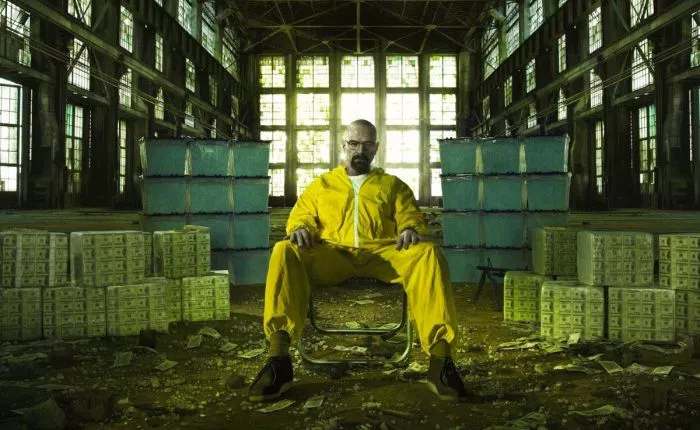“Breaking Bad” is a critically acclaimed television series that aired from 2008 to 2013, created by Vince Gilligan. The show garnered widespread acclaim for its compelling storytelling, complex characters, and meticulous attention to detail, ultimately establishing itself as one of the most iconic and influential television dramas of all time. In this article, we will delve into the key aspects of “Breaking Bad,” exploring its premise, characters, themes, and lasting impact on popular culture.
Premise
“Breaking Bad” follows the transformation of Walter White, a high school chemistry teacher living in Albuquerque, New Mexico, who turns to manufacturing and selling methamphetamine after being diagnosed with terminal lung cancer. Faced with financial hardship and a desire to secure his family’s future, Walter partners with former student Jesse Pinkman, embarking on a dangerous journey into the criminal underworld. As Walter adopts the alias “Heisenberg,” he becomes increasingly consumed by power, greed, and moral ambiguity, leading to devastating consequences for himself and those around him.
Characters
Walter White (Bryan Cranston)
Walter White, portrayed by Bryan Cranston, is the central character and protagonist of “Breaking Bad.” Initially a mild-mannered and overqualified chemistry teacher, Walter’s descent into criminality transforms him into a ruthless and cunning figure. Bryan Cranston’s Emmy-winning performance captured Walter’s complexities, from his initial desperation to his eventual embrace of his alter ego, Heisenberg.
Jesse Pinkman (Aaron Paul)
Jesse Pinkman, played by Aaron Paul, is Walter’s former student and business partner in the methamphetamine trade. Jesse is portrayed as a troubled yet sympathetic character struggling with addiction, guilt, and a desire for redemption. Aaron Paul’s nuanced portrayal earned him critical acclaim and a loyal fan following.
Skyler White (Anna Gunn)
Skyler White, portrayed by Anna Gunn, is Walter’s wife and a key character in the series. Skyler’s gradual awareness of Walter’s criminal activities leads to conflict and moral dilemmas within their family dynamic. Anna Gunn’s performance highlighted Skyler’s evolving emotions and internal struggles.
Gustavo “Gus” Fring (Giancarlo Esposito)
Gus Fring, portrayed by Giancarlo Esposito, is a calculating and enigmatic drug lord who becomes a formidable adversary to Walter and Jesse. Gus operates a legitimate business as a cover for his illicit activities, showcasing a meticulous and composed demeanor that belies his ruthlessness.
Hank Schrader (Dean Norris)
Hank Schrader, played by Dean Norris, is Walter’s brother-in-law and a DEA (Drug Enforcement Administration) agent. Hank’s investigation into the local drug trade unknowingly brings him closer to uncovering Walter’s criminal activities, setting the stage for intense confrontations and moral dilemmas.
Themes
“Breaking Bad” explores a range of complex themes that resonate with viewers and critics alike:
Moral Ambiguity: The series challenges traditional notions of morality and explores the consequences of one’s choices and actions.
Identity and Transformation: Walter’s transformation into Heisenberg underscores the theme of identity and the duality of human nature.
Power and Corruption: The pursuit of power and its corrupting influence are central to Walter’s character arc and the narrative’s trajectory.
Family and Relationships: The impact of Walter’s secret life on his family and relationships serves as a poignant exploration of human connections.
Impact and Legacy
“Breaking Bad” left an indelible mark on popular culture and the television landscape:
Critical Acclaim: The series received widespread critical acclaim, earning numerous awards and accolades for its writing, acting, and direction.
Cultural Phenomenon: “Breaking Bad” became a cultural phenomenon, inspiring fan theories, merchandise, and references in mainstream media.
Spin-Off Series: The success of “Breaking Bad” led to the creation of the acclaimed spin-off series “Better Call Saul,” exploring the backstory of the character Saul Goodman.
Influence on Television: The series’ impact can be seen in subsequent shows that have adopted its narrative techniques, character-driven storytelling, and exploration of moral complexity.
Conclusion
In conclusion, “Breaking Bad” is celebrated as a landmark television series that redefined the medium with its compelling storytelling, memorable characters, and exploration of profound themes. Vince Gilligan’s visionary approach, combined with standout performances from the cast, propelled “Breaking Bad” to iconic status and solidified its place in television history. The series continues to captivate audiences and inspire discussions about the nature of morality, identity, and the human condition, demonstrating the enduring power of exceptional storytelling in the Golden Age of television.
Related Topics:
Awards and Nominations Received by Breaking Bad
How ‘Breaking Bad’ Contributed to the Evolution of TV’s Golden Age
New Dune: Part Two Trailer Reveals Christopher Walken’s Emperor, Teases the Coming War

